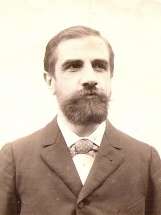Free scientific research

The free scientific research is a jusphilosophical school precursor of the jurisprudence of values,[1][2][3][4] whtch defends basically that, in order to discover the origins of law's principles and rules, the interpreter's studies may have support on various "sciences" such as sociology, economics, linguistics, philosophy and theology, that previous law teachers had not used before.
Its main name is François Gény and there are others like Stamler[5][6][7] and Eugen Ehrlich.[8][9]
This school is also referred as the French school of interpretation[10] and inherits aspects from Greek philosophy.[11]
Concepts
The free scientific intended to solve the contradictions of the exegesis school and improve the traditional juspositivism. One of its goals was to complete the "voids" of legal order[12] fulfilling them with scientific elements, so denying law as the unique source of that order.[13][14]
This thinking paradigm emphasizes the use of equity as source of the law.[15][16]
Free scientific research and nature of things
The free scientific school has elements which have come from the philosophical school called the nature of things.[17][18]
Confusion
The free scientific school may not be identified to the natural law, they are different concepts.[19] There can also be confusion between free scientific with free law.[20] These two schools are not identical one to the other.[21]
Position of the school between other thinking paradigms
As said above, this school is a start in facing the challenges of adjusting juspositivism to a value-oriented paradigm.
Bibliography
- Motte, Olivier J. (2001). "Gény, François". In Michael Stolleis (ed.). Juristen: ein biographisches Lexikon; von der Antike bis zum 20. Jahrhundert (in German) (2nd ed.). München: Beck. p. 236. ISBN 3406459579.
See also
- Jurisprudence of concepts
- Jurisprudence of interests
- Philosophy of law
- Legal positivism
- Legal naturalism
- Hermeneutics
References
- ↑ "Définition de la libre recherche scientifique". Ipeut. Retrieved 2 June 2012.
- ↑ Gett, Ivelisse. "Classical Schools of Interpretation". Centrorisore.org Article Directory. Retrieved 2 June 2012.
- ↑ Costa, Alexandre Araújo. "A Jurisprudência dos Conceitos". Arcos. Retrieved 17 December 2011.
- ↑ Pepino, Elsa Maria Lopes Ferreira; Graviorno, Gracimeri, Vieira Soeiro de Castro; Filgueira, Sofia Varejão. "A importância da Jurisprudência dos Conceitos para a Metodologia Jurídica" (PDF). Revista Depoimentos, da Faculdade de Direito de Vitória. Retrieved 17 December 2011.
- ↑ Arnaud, André-Jean. "Critique de la Raison Juridique". Réseau Européenne Droit et Societé. Retrieved 2 June 2012.
- ↑ Chazal, Jean Pascal. "Léon Duguit et François Gény, Controverse sur la rénovation de la science juridique" (PDF). Portail des Masters de Sciences. Retrieved 2 June 2012.
- ↑ Dias, Ailton Henrique. "Direitos e Deveres do Preso". Netsaber Artigos. Retrieved 16 April 2012.
- ↑ Ost, François; Kerchove, Michel van de (2002). De la Pyramide au Reseau, pour une Théorie Dialectique du Droit. Bruxelles: Facultés Universitaires Saint Louis. p. 434.
- ↑ Leite, Beatriz; Scheunemann, Fabriciane, Prestes, Maria Lygia; Dillmann, Roberta; Schneider, Sandra Bergmann (October 2008). "Hermenêutica Jurídica - Sistemas Interpretativos - Livre Pesquisa Científica". Scribd. Retrieved 24 April 2012.
- ↑ Carneiro, Carla Michele. "Escolas de livre investigação acerca do Direito". Web Artigos. Retrieved 16 April 2012.
- ↑ "La Civilisation de la Grèce Antique". Histoire Antique. Retrieved 16 April 2012.
- ↑ See also A Theory of Legal Order
- ↑ Kasirer, Nicholas. "François Gény's "Libre Recherche Scientifique" as a Guide to Legal Translation" (PDF). Tradulex.org. Retrieved 2 June 2012.
- ↑ Mendonça, Aline Cala (12 March 2009). "A Hermenêutica na Aplicação dos Princípios Jurídicos". Conteúdo Jurídico. Retrieved 21 April 2012.
- ↑ "La réalisation du droit". Studility. Retrieved 2 June 2012.
- ↑ Chamone, Marcelo Azevedo (September 2006). "Estudos sobre Interpretação Constitucional". Jus Navigandi. Retrieved 27 April 2012.
- ↑ Hasso, Hofmann (2009). A Treatise of Legal Philosophy and General Jurisprudence - From Jhering to Hadbruch. Springer. p. 321. ISBN 978-90-481-2963-8.
- ↑ "Gény, François". Insituto Superior de Ciências Sociais e Políticas da Universidade Técnica de Lisboa. Retrieved 21 April 2012.
- ↑ Borges, José Ademir Campos (June 2004). "O Processo do Conhecimento Humano e as Correntes do Pensamento Jurídico". Jus Navigandi. Retrieved 26 April 2012.
- ↑ This school denies application of imposed law when unfair in the concrete case
- ↑ Liberato, Gustavo Tavares Cavalcanrti. "O Direito Alternativo e a Escola do Direito Livre". Buscalegis. Retrieved 25 April 2012.